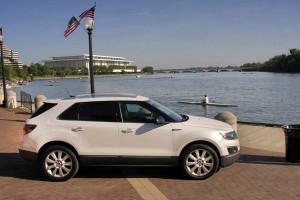
Even if GM approves the sale of Saab the Chinese deal may not offer enough money to pay off creditors.
Already facing the possibility former owner General Motors will block its sale to a Chinese automotive consortium, fast-fading Saab may be forced into liquidation no matter what because the proposed $181 million purchase price would not cover its outstanding debts.
Saab has been frantically searching for a white knight since last March when unpaid partsmakers began a boycott that quickly shut the company’s headquarters assembly plant down. With several proposed alternatives on hold the maker late last month announced it would sell its assets to an alliance formed by Chinese dealer network Pang Da and automaker Zhejiang Youngman Lotus.
But there are growing doubts the deal can go through. And even if the sale wins approval from GM as well as Chinese authorities it may still be blocked by Saab’s creditors.
The most immediate concern is that the sale will be blocked by General Motors – which originally sold Saab to Dutch-based Swedish Automobile, or SWAN, in early 2010. The U.S. maker has expressed concerns that the deal would put its proprietary technology in the hands of Chinese rivals.
General Motors is also concerned that under Chinese ownership Saab could become a significant competitor in that fast-growing market – where GM is currently the largest automotive manufacturer.
Saab has been trying to work up a plan that would satisfy GM and keep the Swedish courts from forcing the small maker into bankruptcy – as its court-appointed administrator has been threatening.
SWAN had originally planned to sell the Pang Da-Zhejiang Youngman consortium A 53% stake for about $300 million. But that deal was repeatedly delayed by Chinese bureaucrats. So, in the end, the partners would pick up the entire country for barely half the price.
But not only would they have to convince GM to go along but they would also have to convince creditors to accept a discount on their debt. The proposed purchase price, at 132 million Euros, is 4.5 million Euros, or about $6 million less than what Saab currently owes.
At this point, SWAN says it is ready to consider “all of its options” when it comes to Saab and the smaller Spyker Cars – a maker of ultra-high-cost sports cars.
The Saab purchase has yet to win approval from Chinese bureaucrats but the preliminary agreement is only valid through November 15 without a written extension.
